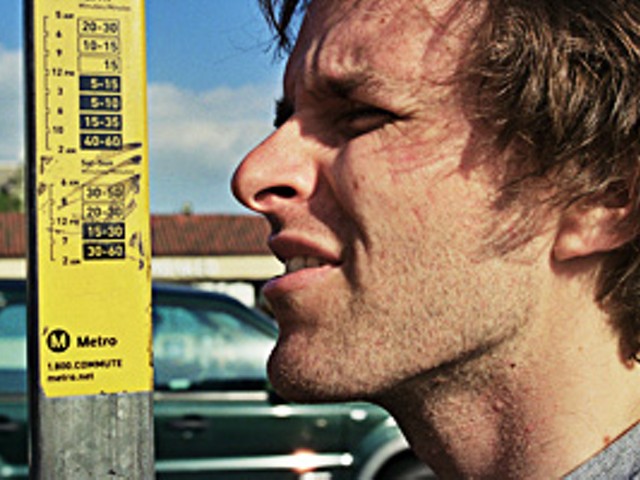German saxophonist Peter Brötzmann is free. Free as in "free jazz"; free as in "freely played"; free as in "liberated from convention." Brötzmann's 40-year-plus recording career is a testament to his freedom, as he easily jumps from solo recordings to playing as half of a duo, to being part of a trio or quartet, and even expanding his compositions to be played with an octet, nonet and what he's dubbed the "tentet," or "octet plus two."
Critics often invoke the ghost of Albert Ayler as a comparison for Brötzmann's sound, and the temptation to burn through synonyms for "loud" is always a threat when writing about him — his industrial-strength lungs produce shocking volume when he cuts loose at full-bore — but to dwell on his ability to blast does a disservice to his musicianship and his intelligence as a collaborator. His gruff tone is immediately recognizable, but it's not as if he wields his sax as a chainsaw, cutting his way through the music to stand at the forefront.
Brötzmann's musical influences include early jazz clarinetist Sidney Bechet and Coleman Hawkins' work with Fletcher Henderson's Orchestra, after all — he knows his way around a pretty melody, and he's not afraid to slip into a jump-blues run if the moment's right. It's Brötzmann's incorporation of all of these elements, and his use of the sax's full spectrum of sound, that reveal his true genius. Couple that musical knowledge with his ability to crush eardrums with adenoidal shrieks that can be heard on the far side of the moon, and Brötzmann's appeal to active listeners is obvious.
Full Blast, Brötzmann's trio with drummer Michael Wertmüller and bassist Marino Pliakas, is the vehicle for Brötzmann's first-ever concert in St. Louis, and it's as good an introduction as any for neophytes. Black Hole, the group's 2008 album, is a corker. "Protoneparcel" has a menacing atmosphere — Wertmüller's grim-voiced kettledrums and Pliakas' flickering notes build ominously, while Brötzmann works a mournful repetitive riff on clarinet and then drops out completely while the rhythm section stomps along. Coughs are audible in the left channel before Brötzmann's rasping clarinet warbles against Pliakas' thudding, two-note throb, and then the whole trio gallops into a controlled boil that returns to the starting point.
But there are also blasts aplenty, as found on "Large Hadron Collider." Pliakas' percolating 32nd-notes provide a swath of black cloth for Wertmüller to light up with high-hat snapshots, and Brötzmann — well, he's as completely Peter Brötzmann as he can be. Snarling, shuddering blasts of tenor sax give way to an extended run of lacy squealing notes that beg the question inherent in the title: If the Hadron Collider was built to unlock the secrets of the mechanics of the universe, what could possibly be built that would unlock the mechanics driving the human heart? What machine could ever explain or demystify the beauty of Peter Brötzmann?





